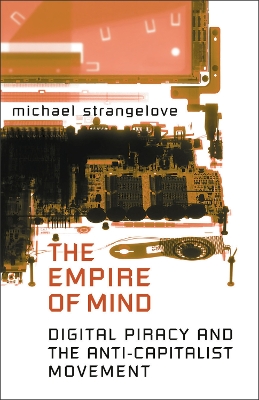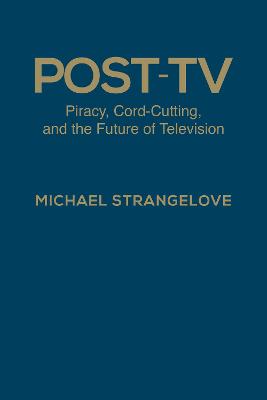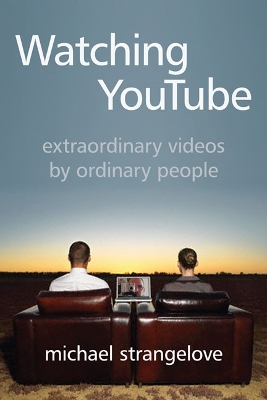Digital Futures
3 total works
Where many critics see the Internet as an instrument of corporate hegemony, Michael Strangelove sees something else: an alternative space inhabited by communities dedicated to anarchic freedom, culture jamming, alternative journalism, and resistance to authoritarian forms of consumer capitalism and globalization. In The Empire of Mind, "Dr. Strangelove," the scholar Canadian Business referred to as the "acknowledged dean of Internet entrepreneurs" and Wired called "the Canadian guru of Internet advertising," presents the compelling argument that the Internet and new digital communication technology actually undermine the power of capital, producing an alternative symbolic economy.
Strangelove contends that the Internet breaks with the capitalist logic of commodification and that, while television produces a passive consumer audience, Internet audiences are more active, creative, and subversive. Writers, activists, and artists on the Internet undermine commercial media and its management of consumer behaviour, a behaviour that is challenged by the Web's tendency toward the disintegration of intellectual property rights. Case studies describe the invention of new meaning given to cultural and consumer icons like Barbie and McDonald's and explore how novel modes of online news production alter the representation of the world as it is produced by the mainstream, corporate press.
In the course of exploring new media, The Empire of Mind also makes apparent that digital piracy will not be eliminated. The Internet community effectively converts private property into public, thereby presenting serious obstacles for the management of consumer behaviour and significantly eroding brand value. Much to the dismay of the corporate sector, online communities are disinterested in the ethics of private property. In fact, the entire philosophical framework on which capitalism is based is threatened by these alternative means of cultural production.
Challenging the notion that the audience is constrained by regulatory and industrial regimes, Strangelove argues that cord-cutting, digital piracy, increased competition, and new modes of production and distribution are making audiences and content more difficult to control, opening up the possibility of a freer, more democratic, media environment. A follow-up to the award-winning Watching YouTube, Post-TV is a lively examination of the social and economic implications of a world where people can watch what they want, when they want, wherever they want.
Online practices of representation, confessional video diaries, gendered uses of amateur video, and debates over elections, religion, and armed conflicts make up the bulk of this groundbreaking study, which is supplemented by an online blog at strangelove.com/blog. An innovative and timely study, Watching YouTube raises questions about the future of cultural memory, identity, politics, warfare, and family life when everyday representational practices are altered by four billion cameras in the hands of ordinary people.


